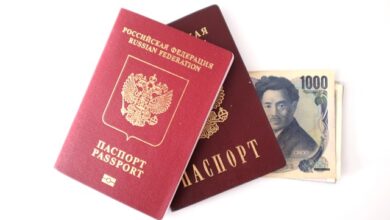Fast-Track Naturalization: Who is Eligible?

Naturalization is the process by which a foreign national becomes a citizen of a country. While the standard naturalization process can take several years, many countries offer fast-track naturalization options for certain individuals who meet specific criteria. These pathways are designed to reward contributions to the country, attract highly skilled professionals, or honor exceptional circumstances. In this article, we’ll explore who may be eligible for fast-track naturalization in various contexts, with a focus on common eligibility categories.
1. Marriage to a Citizen
One of the most common ways to qualify for fast-track naturalization is through marriage or a long-term partnership with a citizen of the country.
Eligibility Criteria:
- Duration of Marriage/Partnership: Typically, you must have been married or in a registered partnership for a minimum period (e.g., 3–5 years).
- Residency Requirements: You may need to have lived in the country for a shorter duration than usual (e.g., 2 years instead of 5).
- Proof of Relationship: Documentation proving the legitimacy of the relationship, such as marriage certificates or joint financial accounts.
- Language Proficiency: Some countries require basic knowledge of the official language.
- Good Character: A clean criminal record and adherence to local laws.
Examples:
- France: Spouses of French citizens can apply for citizenship after living in France for at least 4 years (instead of the standard 5 years).
- United States: U.S. Citizenship and Immigration Services (USCIS) allows spouses of U.S. citizens to apply for naturalization after 3 years of permanent residency if married for at least 3 years.
2. Exceptional Contributions to the Country
Individuals who have made significant contributions to their host country—whether economically, culturally, or scientifically—may qualify for expedited citizenship.
Eligibility Criteria:
- Economic Impact: Entrepreneurs, investors, or business owners who create jobs or stimulate the economy.
- Cultural or Scientific Achievements: Artists, athletes, researchers, or innovators whose work benefits the nation.
- Humanitarian Efforts: Individuals involved in charitable or humanitarian projects that align with national values.
- Recommendations: Endorsements from government bodies, institutions, or industry leaders.
Examples:
- Italy: Investors who contribute significantly to the Italian economy may qualify for faster citizenship.
- Portugal: High-net-worth individuals investing in real estate or startups can access expedited residency and eventual citizenship.
3. Military Service
Serving in the armed forces of a country often qualifies individuals for accelerated naturalization.
Eligibility Criteria:
- Active Duty Service: Completion of a specified period of honorable service (e.g., 1–3 years).
- Deployment in Combat Zones: In some cases, deployment to conflict zones expedites eligibility further.
- Background Checks: Passing security clearances and demonstrating good moral character.
Examples:
- United States: Non-citizen members of the U.S. military can apply for citizenship immediately upon enlistment under Section 329 of the Immigration and Nationality Act.
- United Kingdom: Foreign nationals serving in the British Armed Forces can apply for citizenship after 5 years of service.
4. Refugees and Stateless Persons
Refugees and stateless persons are sometimes granted expedited naturalization due to their vulnerable status.
Eligibility Criteria:
- Legal Refugee Status: Official recognition as a refugee by the host country.
- Statelessness: Proof of being stateless and unable to claim citizenship elsewhere.
- Integration Efforts: Demonstrated efforts to integrate into society, such as learning the language or holding employment.
- Residency Period: Shortened residency requirements compared to other applicants.
Examples:
- Germany: Refugees can apply for citizenship after 6 years of lawful residence (compared to the standard 8 years).
- Canada: Protected persons (refugees) can apply for citizenship after 3 years of permanent residency.
5. Descendants of Citizens (Jus Sanguinis)
Some countries allow descendants of citizens to reclaim citizenship quickly, especially if they can prove ancestry.
Eligibility Criteria:
- Ancestral Ties: Proof of descent from a citizen, such as birth certificates or family records.
- Language Proficiency: Depending on the country, proficiency in the official language may be required.
- Cultural Connection: Evidence of maintaining ties to the country’s culture or heritage.
Examples:
- Ireland: Individuals with Irish grandparents can apply for citizenship without meeting typical residency requirements.
- Italy: Descendants of Italian citizens can claim citizenship through “jure sanguinis” regardless of where they were born.
6. Investors and Entrepreneurs
Many countries offer fast-track naturalization to wealthy investors or entrepreneurs willing to contribute financially to the economy.
Eligibility Criteria:
- Minimum Investment: Meeting a threshold investment amount in real estate, businesses, or government bonds.
- Job Creation: Commitment to creating jobs or boosting economic growth.
- Clean Record: No history of financial crimes or fraud.
Examples:
- Malta: The Malta Individual Investor Programme grants citizenship to those investing €700,000+ in the country.
- Cyprus: Previously offered citizenship to investors purchasing property worth €2 million (program suspended in 2020).
7. Special Programs and Agreements
Certain countries have bilateral agreements or special programs that facilitate fast-track naturalization for specific groups.
Eligibility Criteria:
- Regional Agreements: Participation in regional treaties like the European Union’s free movement policies.
- Historical Ties: Countries with historical connections may offer preferential treatment (e.g., former colonies).
- Diaspora Communities: Nationals living abroad who wish to return home.
Examples:
- Spain: Sephardic Jews with ancestral ties to Spain can apply for citizenship under a special law.
- Hungary: Ethnic Hungarians living outside Hungary can obtain citizenship through simplified procedures.
8. Long-Term Residents with Outstanding Integration
Individuals who demonstrate exceptional integration into society may qualify for expedited naturalization.
Eligibility Criteria:
- Language Skills: Advanced proficiency in the official language.
- Civic Knowledge: Understanding of the country’s history, politics, and culture.
- Community Engagement: Active participation in community activities or volunteer work.
- Employment History: Stable employment and tax contributions over time.
Examples:
- Sweden: Applicants who pass advanced Swedish language tests and civic exams may qualify for faster processing.
- Australia: Permanent residents who excel in English and demonstrate strong ties to the community may receive priority.



